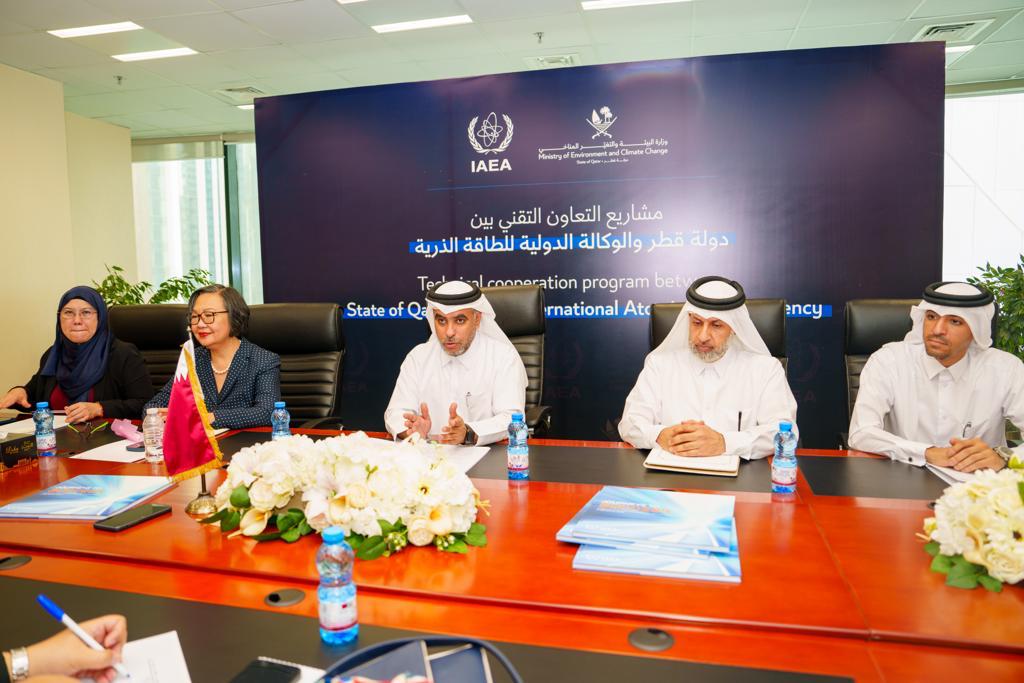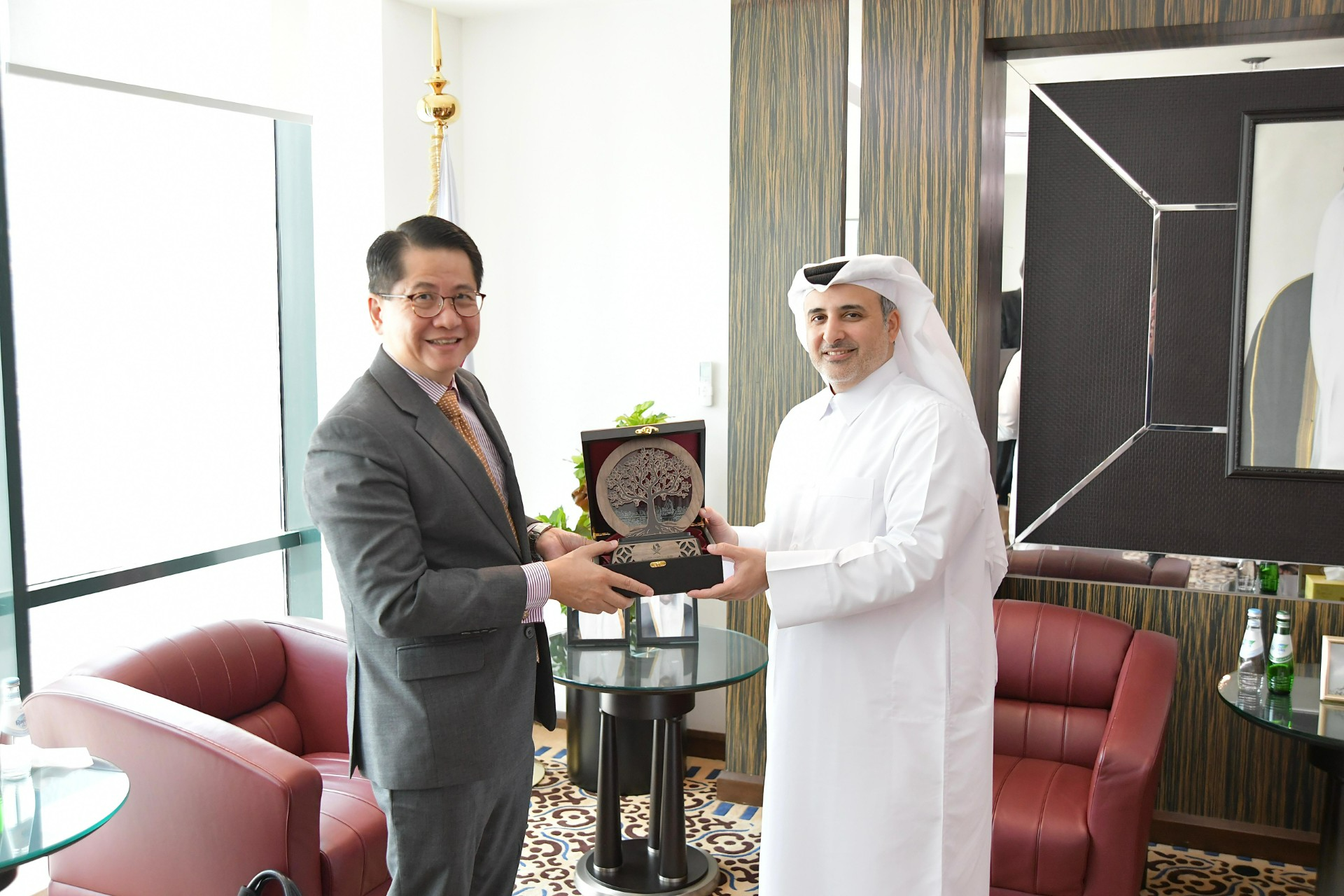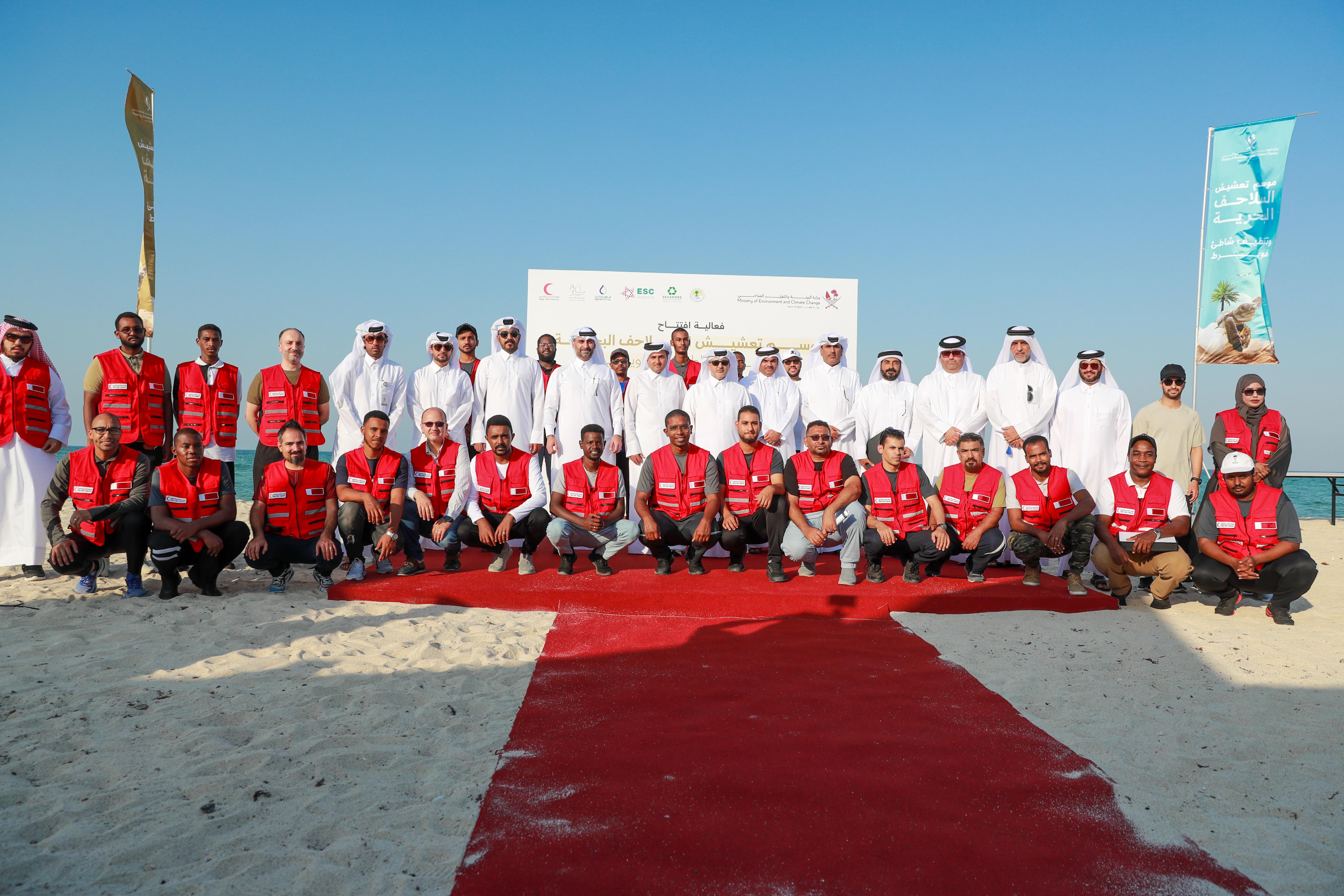
In the Presence of the Assistant Undersecretary for Environmental Affairs, The Ministry of Environment and Climate Change Reviews its National Projects in Cooperation with the International Atomic Energy Agency
Three new national projects for the State of Qatar have been approved by the International Atomic Energy Agency (IAEA). The projects will be implemented in January of next year and will run for three years. The first is in the area of management of Naturally Occurring Radioactive Materials (NORM) resulting from gas and oil extraction. The other two projects, which fall under the scope of technical cooperation in the medical field, are focused on diagnosing cancer, particularly in children, and treating certain animal diseases.
H.E. Abdulhadi Nasser Al Marri, Assistant Undersecretary for Environmental Affairs at the Ministry of Environment and Climate Change, National Liaison Officer for Technical Cooperation Programs at the IAEA, explained during a meeting with the media at the ministry’s headquarters, and in the presence of representatives from the IAEA, that the Radiation Protection Department at the ministry is currently updating the regulations for the management of NORM resulting from the oil industry, which was issued in 2013, to ensure that workers in such industry are not exposed to radiation resulting from the NORM, as well as to ensure that the environment is not contaminated with these radioactive waste, in line with international safety standards.
Al Marri highlighted that the cooperation between the State of Qatar and the IAEA is substantial and in various fields, as this cooperation witnessed the launch of seven national projects, covering the fields of agriculture, food safety from radioactive contaminants, three projects in the field of treatment and diagnosis using radiation techniques, and two projects in the field of radiation safety and radiation protection, which are implemented by Radiation Protection Department at the Ministry of Environment and Climate Change.
The IAEA National Liaison Officer for Technical Cooperation Programs continued that these projects include: developing best practices using nuclear techniques in soil, nutrients, water, and plants to increase feed production, strengthening national food safety capacities to test and monitor residues “contaminants” using nuclear techniques, enhancing knowledge and application of dosimetry in the field of diagnostic radiology, establishing internal dosimetry services, establishing a secondary standards dosimetry laboratory, and strengthening the regulatory control infrastructure. He pointed out that the State of Qatar is currently participating in 14 regional projects in the fields of agriculture, and education, 4 projects in the health sector, 7 projects for environmental radiation safety, and another project for livestock.
Moreover, Al Marri pointed out that the State of Qatar has prepared a set of regulatory guides that provide users of radiation with guidance on protection in order to ensure the safe use of radioactive materials and radiation devices, in line with international safety standards issued by the IAEA, such as; radiation practice manual in nuclear medicine, nuclear metrics, well logging, medical diagnostic imaging, regulation for the safe transport of radioactive materials by land, and regulatory guide to requirements, process and procedures for radioactive sources storage.




